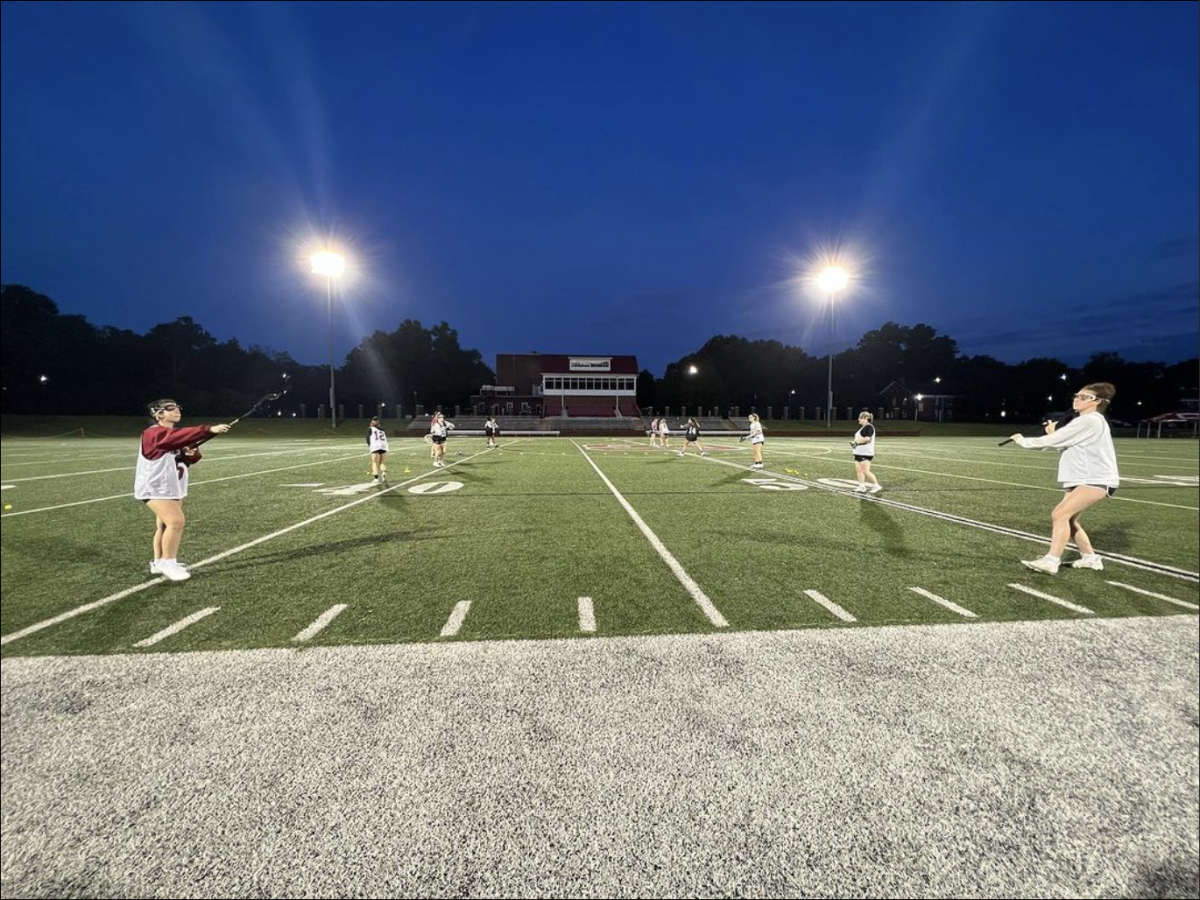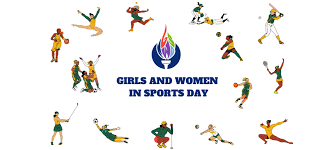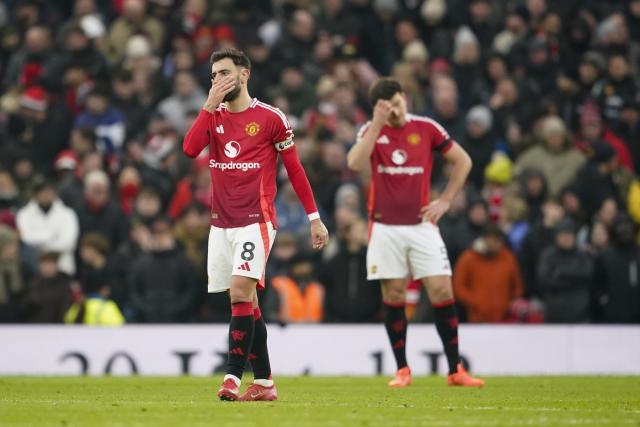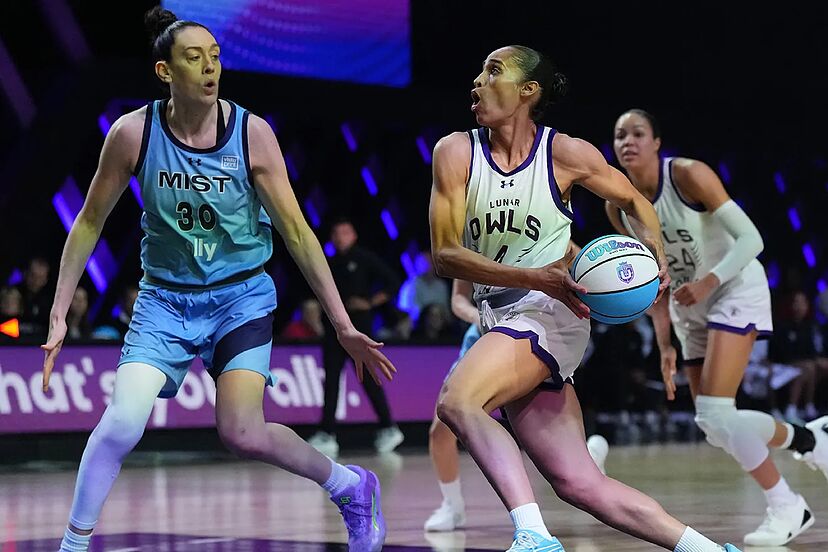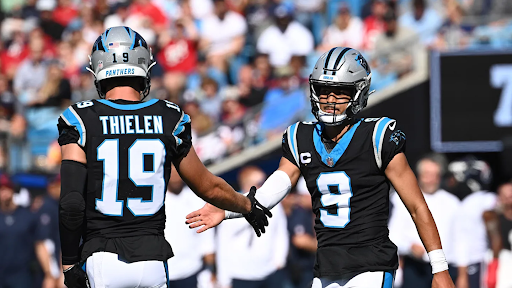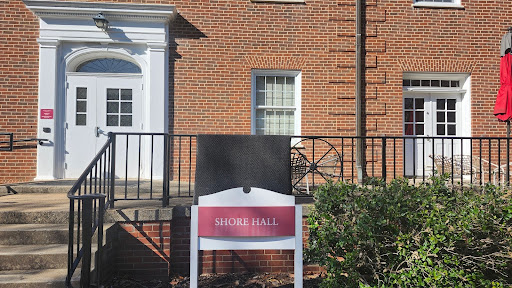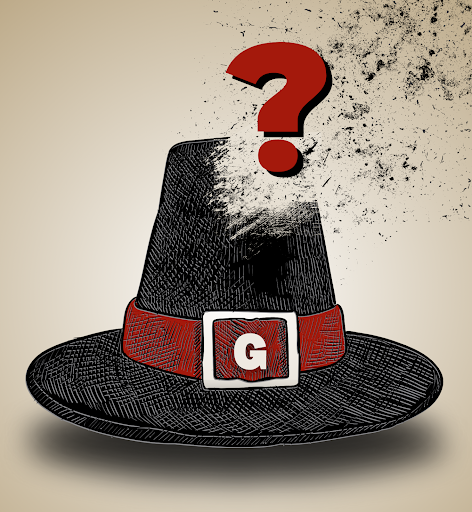Hannah Hoffman is a prime example of a hardworking Guilford athlete. Now embarking on her senior year, she is part of the women’s lacrosse team and previously played for the women’s basketball team. Because lacrosse is a spring sport, we sat down to discuss what goes on in the fall preseason, which consists of demanding physical work that often gets forgotten or overlooked compared to the big games.
Q: Is there anything you’d like to share about your background at Guilford, especially as related to sports?
A: I originally played for the women’s basketball team at Guilford, then became a dual athlete my junior year with basketball and lacrosse. I grew up playing basketball and always had a passion to play it in college, but then I decided I wanted to expand my horizons to lacrosse, just to try a new thing, and I actually ended up being really good at it. For my senior year, I made the big decision of just sticking with lacrosse.
Q: How often would you say you practice and train during the offseason?
A: Over the summer, we focus a lot on endurance and speed, by doing things like long jogs and 3-mile runs. We also do these intense one-minute drills along with a lot of ball-handling work.
Q: Do your coaches have specific guidelines or group activities pertaining to this physical training?
A: Yes, moving into the back-to-school preseason, we have practices and team lifts with our coaches. During the first half of the semester, we spend a lot of time getting to know the first-years and helping them get acclimated to the team, then during the second half we start really focusing on our offensive and defensive plays, such as the 3-2 zone defense. We have roughly six offensive plays we practice through and use all the time because they get us talking the most and help us move through defense the best.
Q: What would you say to someone who downplays women’s lacrosse just because it isn’t a contact sport?
A: Women’s lacrosse actually is a contact sport. I think people just say that a lot because you can tackle in men’s lacrosse, but if we do that you can get a green or yellow card for it. I have gotten injuries, bruises and finger-jams during both practices and games. We can get pretty aggressive with our footwork and defense strategies, so much so that we have to do over-the-head check drills, but most people don’t realize that because of sports like football being famous for their tackling.
Q: Do you ever find yourself missing the feeling of being in games during the fall semester?
A: I don’t really think preseason can replace our games. But at the same time, I don’t miss them much because we split the team in half and have scrimmages. We also have fall-ball games that I look forward to where we compete against other teams and get to learn some of their play styles.
Q: Do you ever find yourself slacking or dealing with physical or mental health issues during the preseason, and how do you deal with this if and when it happens?
A: Both of our coaches are really understanding, and, to be honest, I have a great personal relationship with them, so I feel like I can always go to them if I’m struggling. We are also a great support system as a team, so I can tell them what’s going on if I get upset or I’m feeling down.
Q: Lastly, what recommendations or tips might you have for student-athletes who need the motivation to be persistent during their offseasons, or preseason as you call it?
A: Talk to your teammates who are in the same shoes as you. Tell them if the lack of games is making things challenging for you. Telling friends and other people outside of your sport is also a great way to promote your team and future games, such as with CAB (Campus Activities Board) or other campus clubs that can help spread the word.

